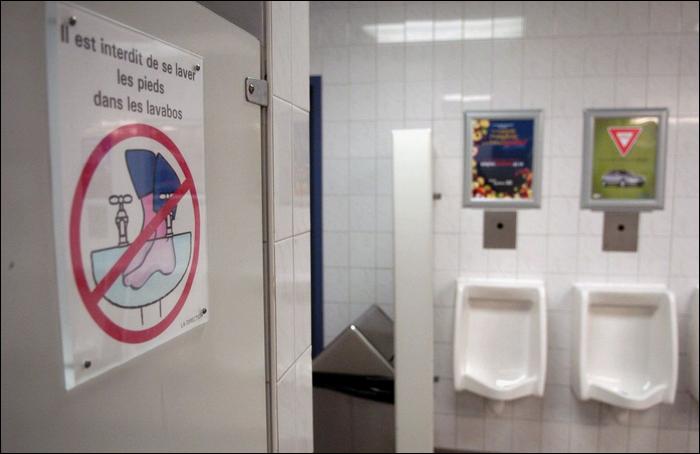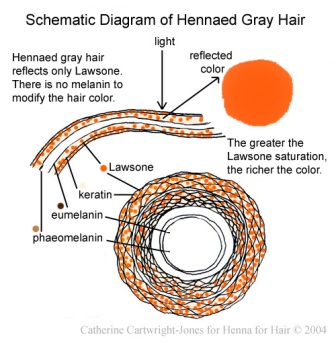Boreal
Little Mosque On The Prairie
Rival Imam
Poor Production Values and Washing Your Feet in a Public Sink
![]() The Prophet Muhammad was very much into perfumes and makeup. He liked to
colour his beard using a bright orange natural dye called henna*. The Prophet also recommended using henna for more than hair colouring:
The Prophet Muhammad was very much into perfumes and makeup. He liked to
colour his beard using a bright orange natural dye called henna*. The Prophet also recommended using henna for more than hair colouring:
Whenever somebody came to Prophet Muhammad (Pbuh**) with complaints of headache, he directed him to undergo cupping and whosoever complained of pain in legs, was advised to apply Henna.
Bukhari, Abu Dawood
For eye makeup (and perhaps protection from the sun) he used khol "an ancient eye cosmetic made by grinding galena (lead sulfide) and other ingredients" Wiki. His perfume was probably a mixture of oil and amber resin. Some Muslims will have khol circles around their eyes and orange strands in their beard as a sign of affinity with the Prophet’s grooming habits.
This however, does not explain the obvious fake beard which clashed with the natural hair colour of the “rival imam.” It may just be an indication of a decline in production values in this CBC attempt at comedy as religious propaganda. It was obviously not an oversight that Little Mosque On The Prairie was not nominated for a single Gemini, and CTV’s Corner Gas walked away with four.
The overlook or understated message in this episode is the difficulty that Western society may have in accommodating primitive religious rituals such a washing one's feet before each of the five mandatory daily prayers (Sunni). The ludicrous excuse used in Rival Imam for not providing a sink for the believers to wash their feet is that it could lead to water shortages. A half a minute shower will probably use more water.
Art imitating life (or is it life imitating art).
In 2006, a human rights complaint was filed with the Quebec Human Rights Commission (Commission des droits de la personne et des droits de la jeunesse) asking the Commission to find fault with the School of Engineering of the University of Quebec (l'École de technologie supérieure) for denying Muslims the right to wash their feet in the school's public washroom sinks, and that signs prohibiting such activities was a slight against Muslims.
The complainants were particularly indignant about the pictogram showing a pair a feet in a sink.

The director of the school gave the following reason for authorizing the solidly anchored sign (my translation).
Employees and students had complained that the bathrooms were a mess after the ritual washing of feet before prayer. I even had to intervene to stop someone from washing his feet in the sink, he already had one foot in the sink … posters that requested that the room be kept clean routinely disappeared which is why I authorised a plaque with the pictogram to be screwed to the wall.
The school argued that the interdiction against washing your feet in a public sink was a question of health (hygiene) and safety and the Commission agreed. For many (including yours truly) that came as somewhat of a surprise considering that human rights commissions and courts across Canada have been bending over backwards to accommodate even the most archaic religious traditions e.g. The Kirpan Decision.
The Commission not only agreed that washing one’s feet in a public washroom sink was a health issue, but that the pictogram which made this clear to even those who could not read French or were illiterate, was not meant to discriminate against any group.
-------
* Henna

** Pbuh is an acceptable abbreviation of "peace and blessings be upon him." Allah blessed his Prophet and expected every one else to the same, with an additional admonition for His Messenger's contemporaries that they "greet him graciously":
33:56 Allah and His angels bless the Prophet. O believers, bless him and greet him graciously too.
The Prophet's followed up Allah's decree that he be blessed, with his patented carrot and stick approach to getting the believers to bend to his or Allah's Will. The stick were warnings that bad things would happen to those who didn't bless him, including Allah not listening to any supplication (requests for favours) that is not only book-ended, but also interspersed with blessings upon him.
The Messenger of Allah said, "May he be humiliated, the man in whose presence I am mentioned and he does not send Salah upon me; ..." Abu Hurayrah as recorded by At-Tirmidhi
A supplication remains suspended between heaven and earth and does not ascend any further until a person sends Salah on me. Do not treat me like a spare water container, send Salah upon me at the beginning of your supplication, at the end, and in the middle."
Reported by Razin ibn Mu'awiyah
The carrot, was that Allah will forgive many bad deeds and grant many brownie points if blessings are showered on him whenever his name is mentioned.
Ahmad ibn Hanbal reported that the companion of Muhammad, Abu Talhah al-Ansari said:
"One morning the Messenger of Allah was in a cheerful mood and looked happy. They said, 'Oh Messenger of Allah, this morning you are in a cheerful mood and look happy.'
"He said, Of course, just now someone [an angel] came to me from my Lord [Allah] and said, 'Whoever among your Ummah sends Salah upon you, Allah will record for him ten good deeds and will erase for him ten evil deeds, and will raise his status by ten degrees, and will return his greeting with something similar to it.'"
Bernard Payeur, November 18, 2007